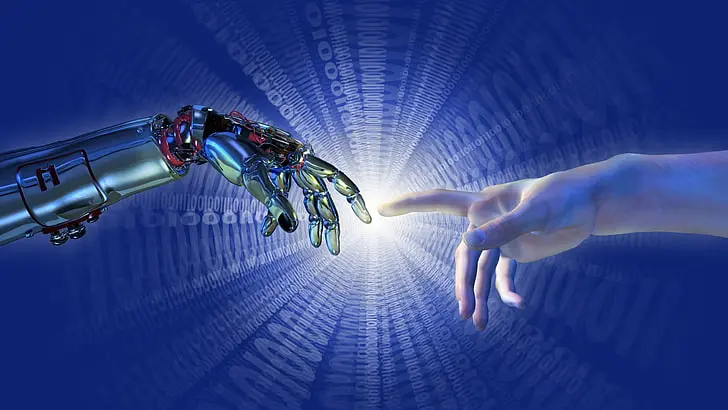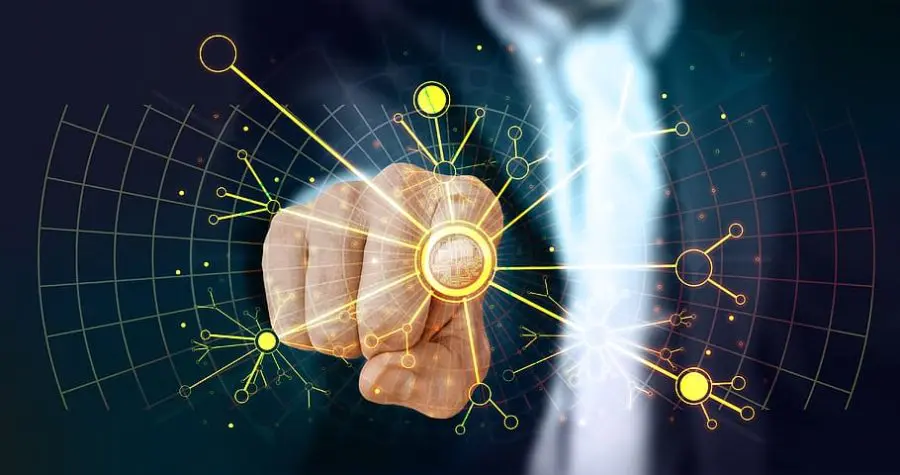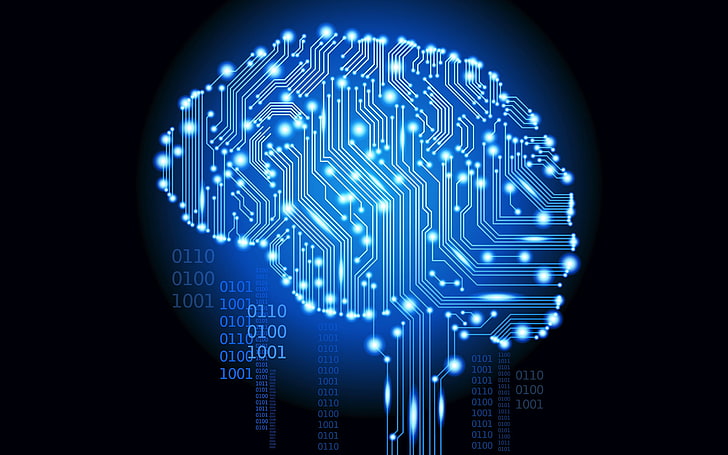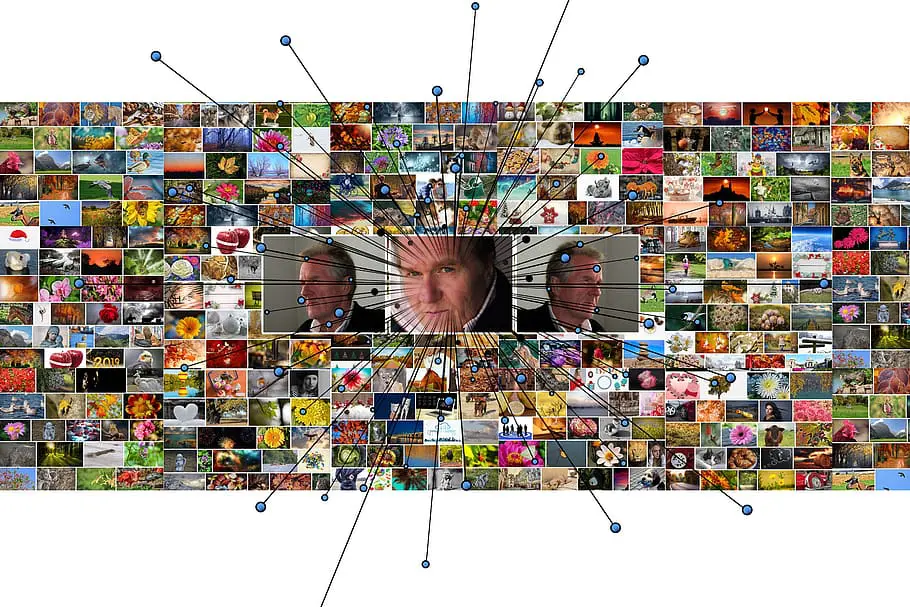
Explore the transformative benefits of artificial intelligence in the workplace. Uncover how AI boosts efficiency, decision-making, and more in our latest post.
Ever wondered how the benefits of artificial intelligence in the workplace could revolutionize your daily grind?
Imagine a workday where routine tasks are automated, decision-making is a breeze, and productivity is through the roof.
Well, with AI, this isn’t just a dream. It’s rapidly becoming our reality.
Let’s dive in and explore how AI is reshaping the modern workplace, making it smarter, more efficient, and even more human-friendly.
Benefits of Artificial Intelligence in the Workplace

Welcome to a journey exploring the benefits of artificial intelligence in the workplace.
From streamlining operations to enhancing decision-making processes, AI is truly a game-changer.
In this post, we’ll delve into the evolution of AI, its numerous benefits, and how it’s transforming industries through real-world case studies.
We’ll also gaze into the future, discussing upcoming trends and potential challenges.
And, of course, we’ll tackle your burning questions in our FAQ section.
So, buckle up and get ready to discover how AI is revolutionizing the way we work!
Brief Overview of Artificial Intelligence
Artificial Intelligence, often simply referred to as AI, is a fascinating field of technology that’s all about creating machines capable of thinking like humans.
But it’s not just about replicating our thought processes. It’s about machines learning from experience, adjusting to new inputs, and performing tasks that normally require human intelligence.
This can range from understanding natural language to recognizing complex patterns.
It’s like having a tireless assistant who’s always ready to learn and adapt.
Importance of AI in the Modern Workplace
Now, let’s talk about why AI is such a big deal in the modern workplace.
You see, AI is not just a fancy tech buzzword it’s a powerful tool that’s transforming the way we work.
It’s helping businesses become more efficient, make better decisions, and even improve employee engagement.
From automating mundane tasks to providing advanced analytics and insights, AI is making workplaces smarter and more productive.
It’s like having a super-powered colleague who’s always on the ball, ready to crunch numbers, analyze data, and provide insights that can drive your business forward.
So, whether you’re in healthcare, manufacturing, retail, or any other industry, AI has the potential to make a significant impact on your workplace.
The Evolution of AI in the Workplace
Let’s take a step back in time and trace the journey of AI in the workplace. It’s a story that’s as fascinating as it is transformative.
From humble beginnings to its current role as a major player in business operations, the evolution of AI is a testament to human ingenuity and innovation.
So, ready to hop into our time machine? Let’s explore how AI has grown, adapted, and ultimately reshaped the landscape of our workplaces.
Historical Perspective
The journey of AI in the workplace has been nothing short of remarkable.
It all started in the mid-20th century with the birth of the concept of ‘machines that think’.
Fast forward a few decades, and we saw the first practical applications of AI in industries like manufacturing, where automation began to take root.
But it wasn’t until the explosion of data in the 21st century, coupled with advances in computing power and storage, that AI really started to come into its own.
This allowed AI to move beyond simple automation tasks and begin to ‘learn’ and ‘adapt’ to its environment, leading to more complex applications like natural language processing and advanced analytics.
Current Trends
Now, let’s fast forward to the present day. AI is no longer a futuristic concept. It’s here, and it’s making a big impact.
One of the key trends we’re seeing is the use of AI in data analysis.
With the vast amounts of data generated in today’s digital world, AI is proving invaluable in sifting through this data and providing meaningful insights.
We’re also seeing AI being used to automate routine tasks, freeing up human workers to focus on more complex, creative tasks.
And let’s not forget about AI’s role in customer service, where chatbots and virtual assistants are providing 24/7 support.
These are just a few examples of how AI is reshaping the modern workplace, and the possibilities for the future are truly exciting.
Benefits of AI in the Workplace

Alright, now that we’ve taken a look at the journey of AI, it’s time to dive into the heart of the matter, the benefits of AI in the workplace.
This is where things get really exciting! AI is not just about cool tech, it’s about real, tangible benefits that can transform the way we work.
From boosting productivity to enhancing decision-making, AI is like the superhero of the modern workplace.
So, let’s roll up our sleeves and delve into the many ways AI is making our work lives better, more efficient, and yes, even a bit more fun!
Increased Efficiency and Productivity
Imagine a workplace where tasks are completed swiftly and accurately, where productivity is at an all-time high.
That’s the power of AI. By automating repetitive tasks and streamlining processes, AI allows employees to focus on more complex and creative tasks.
It’s like having a tireless assistant who’s always on the job, helping to boost efficiency and productivity.
Improved Decision Making
In the world of business, making informed decisions is crucial. Here’s where AI comes in.
With its ability to analyze vast amounts of data and identify patterns, AI provides valuable insights that can guide decision-making.
It’s like having a crystal ball that helps you make the best decisions for your business.
Enhanced Employee Engagement
AI isn’t just about improving processes, it’s also about people.
By taking over mundane tasks, AI allows employees to engage in more meaningful and satisfying work.
This not only boosts morale but also leads to increased creativity and innovation.
It’s like having a tool that not only makes work easier but also makes it more enjoyable.
Automation of Routine Tasks
From scheduling meetings to sorting emails, routine tasks can eat up a significant chunk of our workday.
But with AI, these tasks can be automated, freeing up time for more important work.
It’s like having a personal assistant who takes care of the little things so you can focus on the big picture.
Advanced Analytics and Insights
In today’s data-driven world, having the right information at the right time can make all the difference.
AI excels at analyzing complex data sets and providing actionable insights.
It’s like having a super-powered analyst who can sift through mountains of data and find the golden nuggets of information.
Improved Customer Service
In the age of the customer, providing excellent customer service is key.
AI-powered chatbots and virtual assistants can provide 24/7 support, answering queries and resolving issues quickly and efficiently.
It’s like having a customer service rep who’s always available, always helpful, and never gets tired.
Cost Savings
Last but not least, AI can lead to significant cost savings.
By automating tasks, improving efficiency, and reducing errors, AI can help businesses save money.
It’s like having a financial advisor who’s always looking for ways to improve your bottom line.
Case Studies of AI in the Workplace

Alright, we’ve talked about the benefits of AI in the workplace, but how about we see them in action?
It’s time to dive into some real-world case studies. From healthcare to manufacturing to retail, AI is making waves across various industries.
These stories aren’t just about technology. They’re about how AI is solving problems, driving innovation, and transforming the way we work.
So, let’s get ready to explore the power of AI through these captivating case studies!
AI in Healthcare
Let’s start with healthcare, a sector where AI is making a profound impact.
AI is being used to improve patient care, streamline administrative tasks, and even assist in complex surgeries.
For instance, AI algorithms can analyze medical images to detect diseases at early stages, improving patient outcomes.
AI chatbots can handle routine inquiries, freeing up healthcare professionals to focus on more critical tasks.
And in the operating room, AI-assisted robotic surgery is allowing for greater precision and smaller incisions.
It’s like having a super-smart, tireless medical assistant who’s always ready to help.
AI in Manufacturing
Next up, let’s talk about manufacturing. AI is revolutionizing this sector by improving efficiency, reducing downtime, and enhancing product quality.
For example, AI-powered predictive maintenance can detect equipment failures before they occur, reducing costly downtime.
AI can also optimize production processes to improve efficiency and reduce waste.
And with AI-assisted quality control, manufacturers can detect defects with greater accuracy.
It’s like having a vigilant overseer who’s always looking for ways to improve operations.
AI in Retail
Finally, let’s take a look at retail. From personalized shopping experiences to efficient inventory management, AI is transforming the retail landscape.
AI algorithms can analyze customer behavior to provide personalized product recommendations, enhancing the shopping experience.
AI can also optimize inventory management, ensuring the right products are in the right place at the right time.
And let’s not forget about AI-powered chatbots that provide round-the-clock customer service.
It’s like having a personal shopper, inventory manager, and customer service rep all rolled into one.
The Future of AI in the Workplace

Alright, we’ve seen how AI is transforming the workplace today, but what about tomorrow?
What does the future hold for AI in the workplace? Well, if the current trends are anything to go by, the future looks incredibly exciting.
We’re talking about new trends, potential challenges, and a whole lot of innovation.
So, buckle up, and let’s take a thrilling ride into the future of AI in the workplace!
Predicted Trends
As we gaze into the crystal ball of the future, several exciting trends emerge in the realm of AI.
One of the most significant is the rise of AI-powered decision-making, where AI doesn’t just provide data but also offers actionable insights and recommendations.
We’re also likely to see AI becoming more integrated into our daily work, with AI assistants becoming as commonplace as laptops and smartphones.
And let’s not forget about the rise of AI in remote work, where AI tools can help manage projects, facilitate communication, and even monitor employee wellbeing.
It’s like having a glimpse into a future where AI is an integral part of our work lives.
Potential Challenges
But, as with any technological advancement, the future of AI in the workplace also presents some challenges.
One of the key concerns is the impact of AI on jobs, with automation potentially leading to job displacement.
There’s also the issue of data privacy and security, as AI systems often rely on large amounts of data.
And let’s not forget about the need for upskilling and reskilling, as the rise of AI will require workers to acquire new skills.
It’s like standing at the edge of a new frontier, where exciting possibilities and daunting challenges lie side by side.
Benefits of Artificial Intelligence in the Workplace FAQs

Alright, we’ve covered a lot of ground, but you might still have some questions buzzing around your head. And that’s great!
Questions mean curiosity, and curiosity leads to learning. So, let’s tackle some of the most frequently asked questions about AI in the workplace.
From the benefits of AI to the pros and cons, we’ve got you covered. So, let’s dive into these FAQs and clear up any lingering doubts you might have!
Q: What are the benefits of artificial intelligence in the workforce?
A: The benefits of artificial intelligence in the workforce are numerous. AI can automate routine tasks, freeing up employees to focus on more complex and creative tasks.
It can analyze vast amounts of data to provide actionable insights, aiding decision-making.
AI can also improve customer service, with AI-powered chatbots providing 24/7 support.
And let’s not forget about cost savings, as AI can improve efficiency and reduce errors.
Q: What are the 5 benefits of artificial intelligence?
A: There are many benefits of artificial intelligence, but if we were to pick just five, they would be:
Increased Efficiency: AI can automate routine tasks, boosting productivity.
Improved Decision-Making: AI can analyze data and provide insights, aiding decision-making.
Enhanced Customer Service: AI-powered chatbots can provide 24/7 customer support.
Cost Savings: By improving efficiency and reducing errors, AI can help businesses save money.
Innovation: AI opens up new possibilities for innovation, from new products and services to new ways of doing business.
Q: What are the pros and cons of artificial intelligence?
A: Like any technology, AI has its pros and cons.
On the pro side:
AI can increase efficiency, improve decision-making, enhance customer service, and lead to cost savings.
It can also drive innovation and open up new possibilities.
On the con side:
AI can lead to job displacement as tasks become automated.
There are also concerns about data privacy and security. And the rise of AI requires upskilling and reskilling, which can be a challenge for both individuals and organizations.
Q: What are the pros and cons of AI in the workplace?
A: In the workplace, AI can bring about increased productivity, improved decision-making, enhanced employee engagement, and cost savings.
It can also lead to innovation and new ways of working.
However, there are also challenges. AI can lead to job displacement, particularly for routine tasks.
There are also concerns about data privacy and security.
And there’s the need for upskilling and reskilling, as the rise of AI changes the skills needed in the workplace.
Benefits of Artificial Intelligence in the Workplace Conclusion

Wow, what a journey we’ve been on, exploring the fascinating world of AI in the workplace!
But as with all good things, our exploration must come to an end. However, before we wrap up, let’s take a moment to reflect on what we’ve learned.
We’ll recap the benefits of AI, revisit the challenges, and ponder the future of AI in the workplace. So, let’s dive into our conclusion and wrap up this enlightening journey!
Recap of the Benefits
So, let’s take a moment to revisit the many benefits of AI in the workplace.
We’ve seen how AI can boost efficiency and productivity by automating routine tasks.
We’ve explored how AI can improve decision-making by analyzing data and providing actionable insights.
We’ve also seen how AI can enhance employee engagement, improve customer service, and lead to significant cost savings.
It’s like having a super-powered assistant that can handle a multitude of tasks with ease and precision.
Final Thoughts on the Future of AI in the Workplace
As we look toward the future, it’s clear that AI will continue to play a significant role in the workplace.
From new trends in AI-powered decision-making to the rise of AI in remote work, the future of AI in the workplace is incredibly exciting.
However, we must also be mindful of the challenges, from job displacement to data privacy concerns.
As we navigate this new frontier, it’s crucial to approach AI with a sense of curiosity, a willingness to learn, and a commitment to ethical and responsible use.
It’s like standing on the brink of a new era, filled with potential and ripe for exploration.







